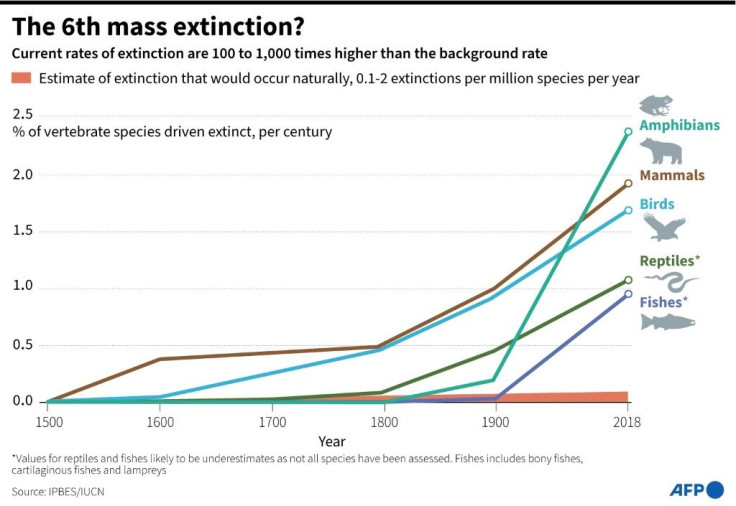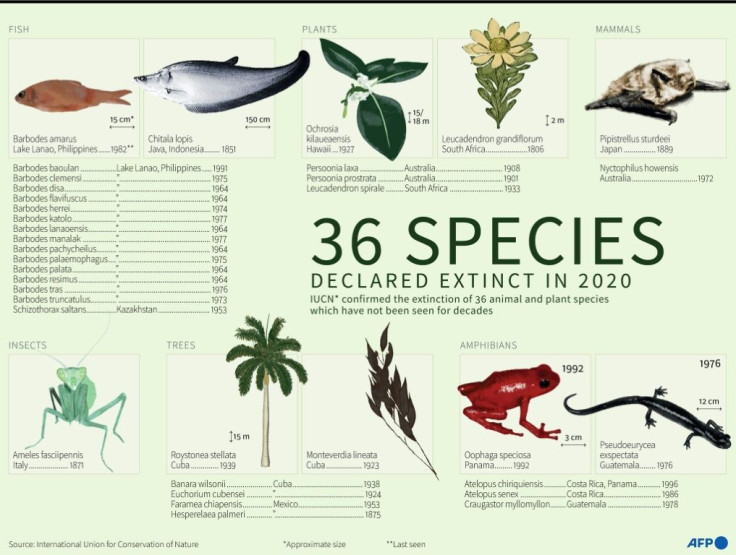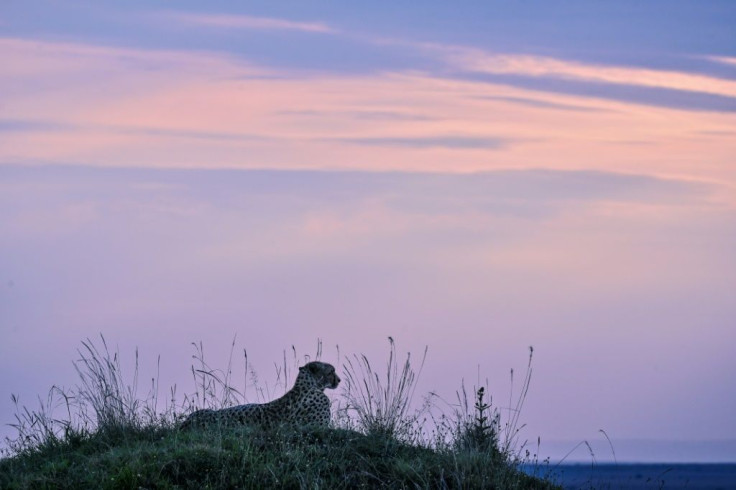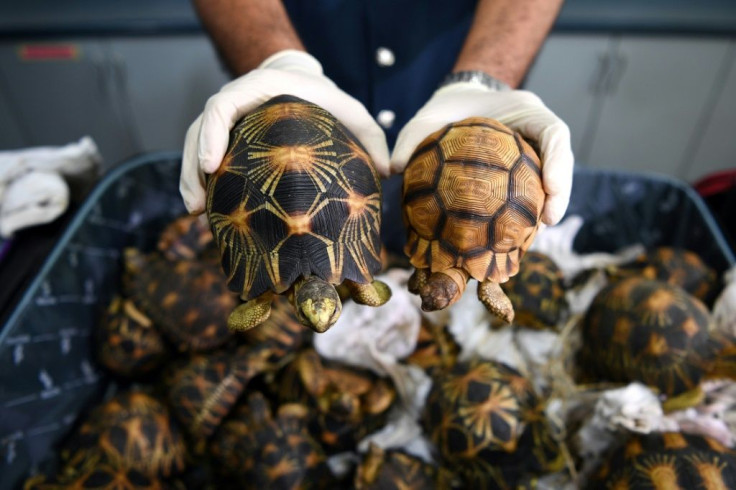Global Meeting Aims For Action To Protect Species In Peril
The perilous state of the planet's wildlife will be laid bare when the largest organisation for the protection of nature meets on Friday, hoping to galvanise action on the world's intertwined biodiversity and climate crises.
Relentless habitat destruction, unsustainable agriculture, mining and a warming planet will dominate discussion at the International Union for the Conservation of Nature (IUCN) conference in the French city of Marseille.

"We are facing huge challenges. We are seeing the climate changing and impacting hugely our societies. We are seeing biodiversity disappearing and the pandemic hitting our economies, our families, our health," said IUCN chief Bruno Oberle in a speech before the Marseille meeting opened.
"And we know that all these challenges are linked to each other and these challenges are linked to our human behaviour."
The meeting, delayed from 2020 by the pandemic, comes ahead of crucial UN summits on climate, food systems and biodiversity that could shape the planet's foreseeable future.

French President Emmanuel Macron said the goal was to "put nature at the top of international priorities" in a statement ahead of the IUCN meeting.
"Because our destinies are intrinsically linked, planet, climate, nature and human communities."
Macron said the conference should lay the "initial foundations" for a global biodiversity strategy that will be the focus of UN deliberations in China in April next year.

The international community is trying to frame interim goals for this decade as well as longer-term aims for 2050.
Previous IUCN congresses have paved the way for global treaties on biodiversity and the international trade in endangered species.
But efforts to halt extensive declines in numbers and diversity of animals and plants have so far failed to slow the destruction.

In 2019 the UN's biodiversity experts warned that a million species are on the brink of extinction -- raising the spectre that the planet is on the verge of its sixth mass extinction event in 500 million years.
The nine-day IUCN meeting, which opens at 1500 GMT on Friday, will include an update of its Red List of Threatened Species, measuring how close animal and plant species are to vanishing forever.
Experts have assessed nearly 135,000 species over the last half-century and nearly 28 percent are currently at risk of extinction, with habitat loss, overexploitation and illegal trade driving the loss.
Big cats, for example, have lost more than 90 percent of their historic range and population, with only 20,000 lions, 7,000 cheetahs, 4,000 tigers and a few dozen Amur leopards left in the wild.
The meeting is likely to hammer home the message that protecting wildlife is imperative for the healthy function of ecosystems and for humanity.
Loss of biodiversity, climate change, pollution, diseases spreading from the wild have become existential threats that cannot be "understood or addressed in isolation," the IUCN said ahead of the meeting in a vision statement endorsed by its 1,400 members.
Motions on the table include protecting 80 percent of Amazonia by 2025, tackling plastic in the oceans, combating wildlife crime and preventing pandemics.
The IUCN will also, for the first time in its seven-decade history, welcome indigenous peoples to share their knowledge on how best to heal the natural world as voting members.
Oberle thanked indigenous groups for joining the IUCN's membership and bringing a "wealth of experience" on how to have a different relationship with the planet.
© Copyright AFP {{Year}}. All rights reserved.





















